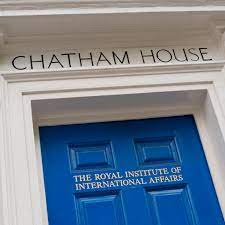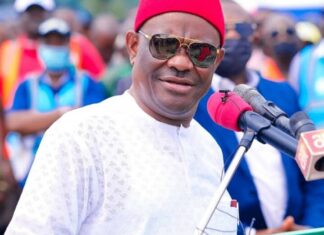Chatham House reiterates INEC let down energised youths
By Jeph Ajobaju, Chief Copy Editor
Chatham House, an independent policy institute based in London, says its analysis of the presidential election in Nigeria on February 25 shows the Independent National Electoral Commission (INEC) failed to follow its own guidelines.
It stressed the INEC failed to adhere to its own guidelines, which it enunciated before the vote, especially the uploading of results in real-time.
The findings emerged as Fitch Solutions has lowered Nigeria’s Social Stability score in its proprietary Short-Term Political Risk Index (STPRI) to 17.5 out of 100, down from 25.0 previously projected, following the “weak” mandate claimed by President-elect Bola Tinubu of the All Progressives Congress (APC).
Chatham House highlighted disenfranchisement, saying despite Nigeria boasting the biggest electoral register in Africa of 93.4 million voters, fewer than 25 million valid votes were counted in the presidential election.
Chatham House Associate Fellow, Africa Programme, Leena Koni Hoffmann, wrote the delayed opening of polls meant many potential voters were not able to vote.
“The INEC’s performance and controversies over these results mean that the electoral reforms and lessons declared to have been learned were not fully applied and, as an electoral body, it was significantly less prepared than it claimed,” Hoffman wrote.
“The logistical failures of INEC and widespread delayed opening of polling units meant that voters who showed up at the polls early were frustrated and many voters and INEC staff were not able to locate their polling units for several hours.”
Nigerians queued in the sun and rain to cast their votes, despite recurrent fuel crisis, epileptic power supply, record inflation, and a painful cash crunch, he said.
Hoffman added thousands of voters were disenfranchised, and multiple irregularities recorded as well as intimidation and violence as noted by election observers.
“Less than half of eligible voters could participate in the elections, despite the commission’s N305 billion budgetary allocation.”
_________________________________________________________________
Related articles:
US urges INEC to fix BVAS, logistics before guber election
Fix BVAS failure before gov ballot, NBA tells INEC
Atiku leads PDP Abuja protest to keep INEC’s feet to the fire
__________________________________________________________________
Youths energised, but let down by INEC
“While Nigeria’s youth seemed energised leading up to the elections, it seems their ability to turn out is still being hugely constrained by how difficult and potentially dangerous it is to cast a vote in Nigeria,” Chatham House said, per ThisDay.
“The INEC’s performance and controversies over these results mean that the electoral reforms and lessons declared to have been learned were not fully applied.
“At just 25.7 per cent, the elections have the lowest recorded turnout of any election since Nigeria returned to democracy in 1999, despite being the most expensive.
“These dwindling numbers highlight how Nigeria’s politics and state institutions continue to exclude rather than include.
“[The INEC] failed to adhere to its own statements and guidelines, which derive from its laws, that election results would be uploaded to its portal using the BVAS directly from the polling unit in real-time for the public’s viewing.”
Chatham House noted the INEC having just 23 per cent of public trust going into the election, the need for its strict transparency in this crucial phase of electronic results transmission could not be overstated and should not be downplayed.
INEC’s sub-optimal performance, Chatham House added, must be taken seriously because Nigeria’s path to recovery and stability must follow the way of accountability and electoral integrity.
“Tinubu’s party first came into power in 2015 through a campaign of change and he has won in 2023 by running a campaign for renewed hope.
“But many of the issues that worried the Nigerian electorate in 2015 are a bigger headache in 2023 – significantly due to the self-inflicted fiscal and monetary decisions of the president he will be succeeding.
“In the months leading up to his swearing, Tinubu needs to marshal an extraordinary amount of political capital, goodwill and consensus to redirect and reunite a fractured and volatile Nigeria.”














